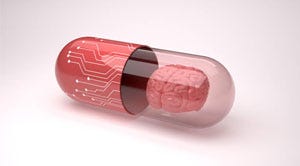Drug Discovery Significance In Pharma Industry
- DRUG DISCOVERY: SIGNIFICANCE OF ARTIFICIAL INTELLIGENCE

Drug discovery is a challenging vertical in the Pharma industry as the researchers face slim odds while trying to convert a molecule into a medicine. Most studies put the success rate for drug discovery as below average as the chances for success stands at one in ten. However, many researchers are of the opinion that artificial intelligence (AI) can be the game-changer for drug discovery with the help of advanced computational tools such as machine learning (ML) and molecular dynamics simulation.
You can also Check Out: Top Pharmaceutical Compliance Companies
The traditional way of drug discovery project starts with basic research that is aimed to uncover the targets which are susceptible to attacks like a disease-related protein receptor on the surface of particular cells. After uncovering the targets, scientists use techniques like high-throughput screening to observe which compound bind the target. The researchers use various other measures to fine tune the structure of the medicine. AI tools can help scientists to look for patterns in large data sets that can be missed by the human eye. The patterns can enable scientists in predicting the compounds that have a high probability of turning into medicines.
AI technology can help researchers to connect the dots in their research for drug discovery. The AI-enabled solutions can be applied to the whole genome, phenotypic, and clinical data. The ML technique can help researchers to combine multiple parameters collected from simulation to generate a model that differentiates biochemically active from biochemically inactive molecules.
Although the use of AI in drug discovery has started gaining steam, many healthcare companies still use the traditional methods of drug discovery. The AI solutions need data for effective results and as AI tools get more healthcare data; they will be able to add significant advantages to the drug discovery. The AI technology can help researchers to finish mundane and repetitive tasks in real-time, allowing researchers to concentrate on more productive works.
2. AI IN LIFE SCIENCES: ACCELERATING SMART DRUG DISCOVERY
AI applications in healthcare are many that can transform key sectors such as drug discovery. Machine learning, with its capacity to ultimately exceed the intelligence level of human beings, is the most important aspect of AI that many pharmaceutical companies need today. Increasing AI investments in the discovery of medicines by large pharmacies show that machine learning can be used to identify possible candidates for drugs and to screen them.

GlobalData, a data analytics and media company, highlights the importance of data scientists and developers monitoring their systems performance and taking steps to adjust or train the system to prevent a repetition of mistakes, such as security violations. In other words, GlobalData predicts that AI will transform the process of drug discovery.
Businesses in the life sciences are making steps in the fields of gene and cell therapy, omics technologies (genomic, transcriptomic, proteomic, and metabolomic) and clever molecules, creating an urgent need for advanced, cost-effective, and time-effective technologies to parse large databases to develop innovative treatments, according to the Frost & Sullivan report, ‘Artificial Intelligence Revolutionizing the Pharmaceutical Industry.’
The report presents the roadmap for technology in the pharmaceutical industry, trends, capacity and applications driven by artificial intelligence (AI). It includes the activities of the stakeholders, as well as the initiatives of the industry and analyzes investments, regional and global regulatory environment and standardization approaches to address challenges.
AI-driven tools encourage companies to develop a treatment for underserved areas and also pave the way for precision medicine by means of a method of discovery and development for stratified therapeutics. AI-based technology companies can utilize scientific results and synergy learning systems for therapeutic, diagnostic, and theranostic developments to be translated into success. AI’s significant applications in pharmaceuticals are Drug development, Clinical trials, Candidates’ validation, Precision medicine, and Regulatory approval.
There are tremendous opportunities in medicine if AI technology can be developed further. A genuine AI technology might be like a human intellect, but much more capable, keeping the entire system of human biology and disease biology in its ‘mind’ alongside all the science literary information. Both of these resources could be used to find the best treatment for a disease or health issue.

Check This Out: Top Drug Discovery and Development companies
Comments
Post a Comment